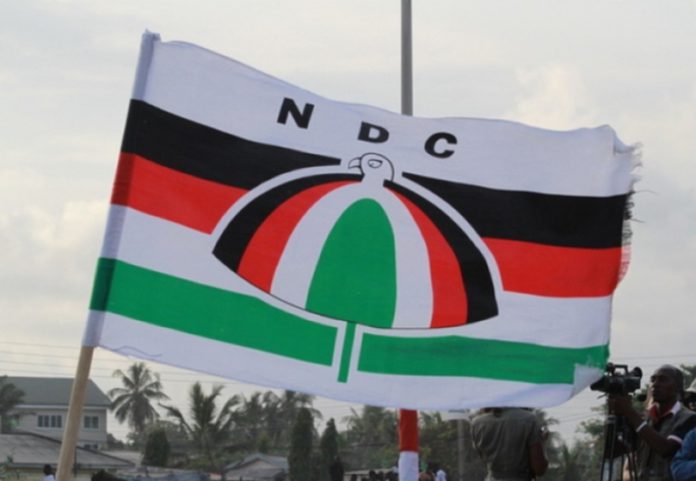With just a month left until the polls, citizens are set to elect a new set of parliamentarians and the 9th democratic president of the Republic. Political parties have intensified their campaign activities across the country, and the Volta region is no exception.
Since April 2024, Vice President Dr. Mahamudu Bawumia, the flagbearer of the ruling New Patriotic Party (NPP), has visited the region more than five times to promote his presidential ambitions.
Conversely, the leader of the National Democratic Congress (NDC), Mr. John Dramani Mahama, and his team have travelled extensively throughout the region, explaining why he seeks a return to the presidency.
Both parties, along with other political groups and independent parliamentary candidates, have been actively campaigning. At this point, who are the people of the Volta region leaning towards—the NDC, NPP, or others?
Historically, Voltarians have supported the NDC, earning the region the designation as the party’s “World Bank.” However, it appears that this unwavering support is gradually diminishing, as evidenced by the increasing influence of the NPP—an alarming trend for the NDC.
Reviewing past elections, the NPP has consistently seen an increase in votes from the region, particularly since the 2016 general elections. This trend continues to foster optimism within the NPP about making significant inroads and possibly breaking barriers in the region.
In the 2016 elections, the NPP garnered 60,802 votes in the region, representing 10.81%. In the 2020 elections, they gained an additional 3.3%, bringing their total to 101,084 votes, or 14.1%. According to party leaders in the region, this is a noteworthy achievement.
At the constituency level, the NPP has also seen an increase in presidential votes in both major elections. For example, in the Adaklu constituency, NPP votes rose from 972 in 2016 to 1,967 in 2020. In Akatsi South, the party’s votes increased from 2,235 in 2016 to 3,754 in 2020. In Agortime Ziope, votes went from 1,394 in 2016 to 2,766 in 2020. In Akatsi North, the increase was from 1,222 in 2016 to 2,784 in 2020, and in Akatsi South, votes rose from 3,260 in 2016 to 4,581 in 2020.
In the Anlo constituency, the NPP saw an increase from 2,393 votes in 2016 to 4,990 in 2020. They also made significant gains in Keta, a traditional stronghold for the NDC, where votes increased from 1,670 in 2016 to 4,603 in 2020. In Central Tongu, the party’s votes rose from 2,987 in 2016 to 3,951 in 2020, while in South Tongu, they went from 3,142 to 4,249.
In Ho Central, the heart of the region, the NPP’s votes increased from 5,998 in 2016 to 8,715 in 2020. Neighboring Ho West saw an increase from 3,256 to 5,468 votes in the same period. The NPP made a notable impact in Hohoe, where the Railway Minister, John Peter Amewu, helped boost votes from 6,869 in 2016 to an impressive 14,389 in 2020. This success allowed Amewu to become the first NPP MP elected from the Volta region.
In Ketu North, votes increased from 9,230 in 2016 to 14,330 in 2020, while in Ketu South, they rose from 7,590 to 10,949. The NPP also improved its standing in Kpando, with votes increasing from 2,631 in 2016 to 3,682 in 2020, and in North Dayi, where votes rose from 1,525 to 2,867. In North Tongu, the party saw a modest increase from 2,843 to 4,149, and in South Dayi, votes increased from 1,585 to 2,890.
Moreover, the NPP’s performance in Keta, Ketu North, Ketu South, and Hohoe has positioned them favourably.
In the parliamentary elections, NPP candidates in the region also showed improvement in 2020 compared to 2016, while the NDC recorded a drop in votes in many constituencies.
These statistics raise concerns about the status of the Volta region as the NDC’s “world bank.” As we approach the December elections, the question remains: what will the voting patterns in the Volta region look like? Previous results suggest that the NPP is gaining traction in what was once considered a stronghold for the NDC.
As we await the December results, it is essential for the NDC to strengthen its efforts in the region, while the NPP must intensify its push for more votes. It is crucial to ensure that this election is conducted peacefully. To facilitate this, several Civil Society Organizations (CSOs) have begun organizing events to educate the public.
At a recent training for journalists organised by the Media Foundation for West Africa (MFWA), Eric Kofi Dzakpasu, the Volta Regional Director of the Electoral Commission, urged journalists and the media to refrain from declaring election results prematurely and called for both individual and collective efforts to ensure a peaceful election.

